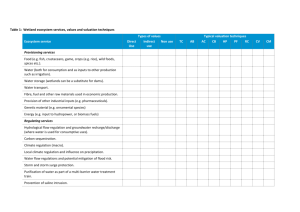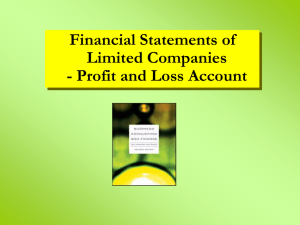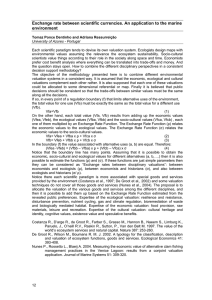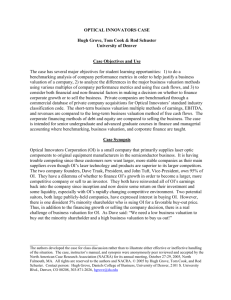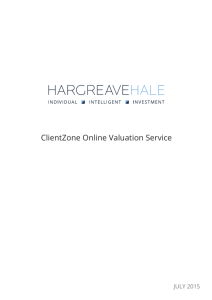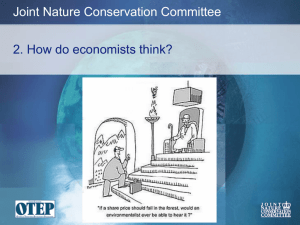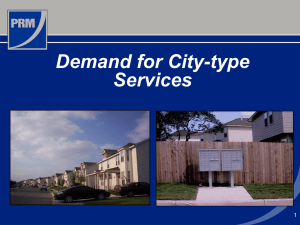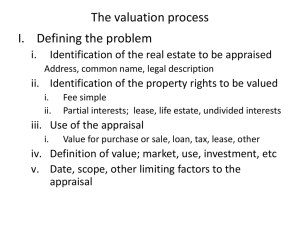PUBLIC PARTICIPATION IN ECOLOGICAL VALUATION
advertisement
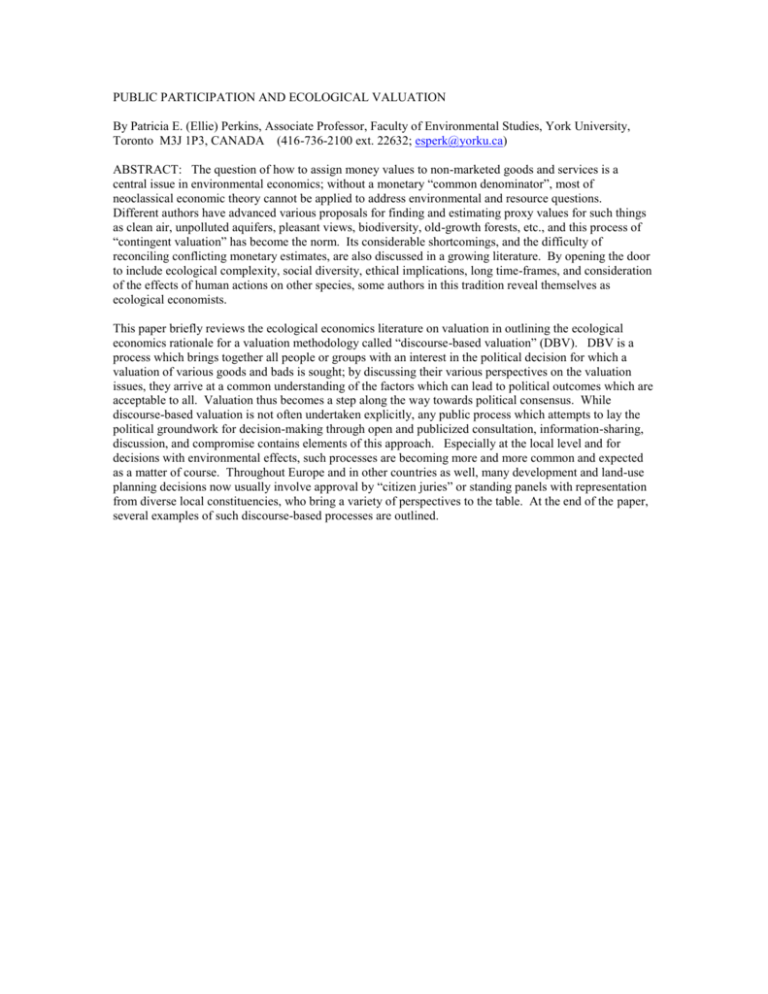
PUBLIC PARTICIPATION AND ECOLOGICAL VALUATION By Patricia E. (Ellie) Perkins, Associate Professor, Faculty of Environmental Studies, York University, Toronto M3J 1P3, CANADA (416-736-2100 ext. 22632; esperk@yorku.ca) ABSTRACT: The question of how to assign money values to non-marketed goods and services is a central issue in environmental economics; without a monetary “common denominator”, most of neoclassical economic theory cannot be applied to address environmental and resource questions. Different authors have advanced various proposals for finding and estimating proxy values for such things as clean air, unpolluted aquifers, pleasant views, biodiversity, old-growth forests, etc., and this process of “contingent valuation” has become the norm. Its considerable shortcomings, and the difficulty of reconciling conflicting monetary estimates, are also discussed in a growing literature. By opening the door to include ecological complexity, social diversity, ethical implications, long time-frames, and consideration of the effects of human actions on other species, some authors in this tradition reveal themselves as ecological economists. This paper briefly reviews the ecological economics literature on valuation in outlining the ecological economics rationale for a valuation methodology called “discourse-based valuation” (DBV). DBV is a process which brings together all people or groups with an interest in the political decision for which a valuation of various goods and bads is sought; by discussing their various perspectives on the valuation issues, they arrive at a common understanding of the factors which can lead to political outcomes which are acceptable to all. Valuation thus becomes a step along the way towards political consensus. While discourse-based valuation is not often undertaken explicitly, any public process which attempts to lay the political groundwork for decision-making through open and publicized consultation, information-sharing, discussion, and compromise contains elements of this approach. Especially at the local level and for decisions with environmental effects, such processes are becoming more and more common and expected as a matter of course. Throughout Europe and in other countries as well, many development and land-use planning decisions now usually involve approval by “citizen juries” or standing panels with representation from diverse local constituencies, who bring a variety of perspectives to the table. At the end of the paper, several examples of such discourse-based processes are outlined.


